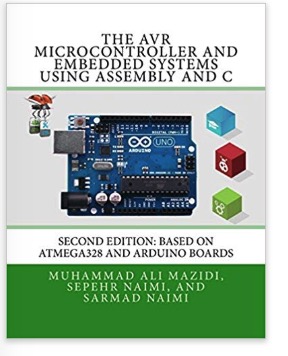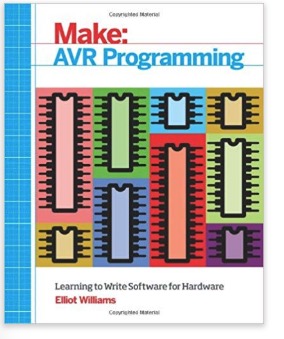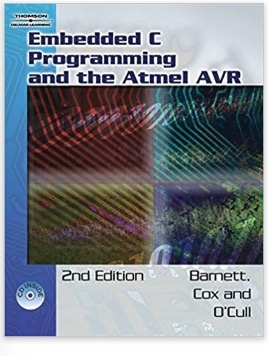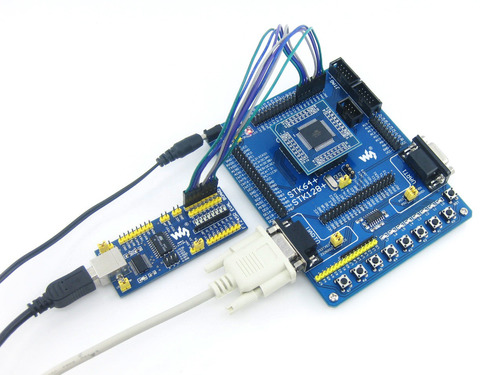Blog
Recent Posts
Educational Guides To Atmel AVR Microcontroller Programming
Posted by on
The AVR Microcontroller and Embedded Systems Using Assembly and C: Using Arduino Uno and Atmel Studio
The AVR microcontroller from Atmel (now Microchip) is one of the most widely used 8-bit microcontrollers. Arduino Uno is based on the AVR microcontroller; it is inexpensive and publicly available around the world.
In this book, the authors use a step-by-step and systematic approach to demonstrate the programming of the AVR chip. Examples in both Assembly language and C explain how to program many of the AVR's features, such as timers, serial communication, ADC, SPI, I2C, and PWM.
The text is organized into two parts:
- The first six chapters use Assembly language programming to examine the internal architecture of the AVR.
- Chapters 7-18 uses both Assembly and C to show the AVR peripherals and I/O interfacing to real-world devices such as LCD, motor, and sensor.
The first edition of this book, published by Pearson, used the ATmega32. It is still available for purchase from Amazon. This new edition is based on Atmega328 and the Arduino Uno board.
AVR Programming: Learning to Write Software for Hardware
Atmel's AVR microcontrollers are the chips that power Arduino and are the go-to chip for many hobbyists and hardware hacking projects. In this book, you will set aside the layers of abstraction provided by the Arduino environment and learn how to program AVR microcontrollers directly.
In doing so, you will get closer to the chip, and you will be able to squeeze more power and features out of it.
Each chapter of this book is centered around projects that incorporate that particular microcontroller topic. Each project includes schematics, code, and illustrations of a working project.
Embedded C Programming and the Atmel AVR
Using the popular and cost-effective Atmel AVR embedded controller as the platform and application for learning, Embedded C Programming and the Atmel AVR is the perfect choice for novices. Featuring a host of fully-functional example applications, this highly innovative book enables users to adopt a "learn by doing" approach as they develop the knowledge and skills needed to achieve proficiency.
Following an introduction to Atmel AVR RISC processors, readers are launched immediately into an embedded C language tutorial.
Here, they will experiment with variables and constants, operators and expressions, control statements, pointers and arrays, memory types, preprocessor directives, real-time methods, and more.
In addition to a comprehensive library functions reference, an entire chapter on the CodeVision AVR C Compiler provides explicit, step-by-step instruction in IDE installation and operation, mixing Assembler with C, and using the Code Wizard Code Generator. Use of peripherals - such as keypads, LCDs, and other standard embedded microcontroller-related devices - is also explored fully in this all-inclusive, state-of-the-art programmer's how-to and reference manual.
STK128+ - ATmega128 MCU AVR Development Board
The STK128+ is a complete, cost-effective development board for the ATmega128. It is designed to provide designers a quick start to develop code for the ATmega128 MCU, expediting the prototype development of ATMega 128 devices.
The ATmega128 chip is mounted on a device board, which can be separated from the motherboard, allowing the secure exchange of the MCU. The ATmega128 chip comes in a TQFP64 package and can be the ATmega128-16AU, ATmega128L-8AU, or ATmega128A-AU.
The STK128+ package comes with an ATmega128 device board, an additional spare ATmega128 device board, and an Experiment Fittings Pack.
 Loading... Please wait...
Loading... Please wait...




